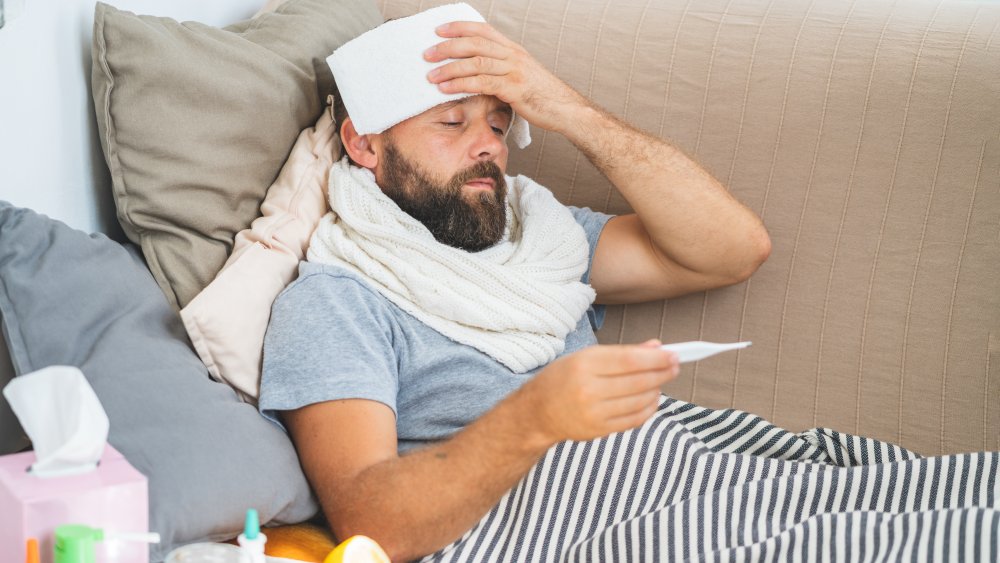What's Really Happening When You Get The Chills From A Fever
Most of us have experienced the odd sensation of burning up with a fever and feeling ice-cold at the same time. It's one of the bodies' paradoxical states that leave us baffled — and usually feeling better after a while. But what's actually going on?
When our bodies fight an infection, there is some pretty sophisticated communication going on between the immune system, the brain, and the rest of the bodily systems. Since most viruses and bacteria have a hard time surviving in temperatures above 98.6 F, which is the average healthy body temperature, a rise in temperature is an effective way to try and destroy these harmful agents. Amesh Adalja, M.D., a senior scholar at the Johns Hopkins Center for Health Security in Baltimore, told Everyday Health, "Part of our immune system's response against infection includes raising the body's temperature to diminish the ability of microbes to reproduce." So, the fever is actually helping the body heal.
With a fever, get plenty of rest and fluids
Before a fever develops, the immune system sends a message to the hypothalamus, which, according to Mental Floss, is the body's internal brain-based thermostat. The hypothalamus then signals the body to raise its temperature well above the normal 98.6 F, and the body systems respond by generating a lot of heat.
On the other hand, because your actual body temperature, and the environmental temperature, is still below the new 'ideal' set point determined by the hypothalamus, you actually feel cold, and your body in turn responds by shivering and shaking to try to increase its temperature. So long as your body temperature is still lower than what the brain thinks it 'should' be, you'll feel chilled.
Most fevers, when not accompanied by other symptoms, will come down on their own and need no treatment beyond plenty of rest, fluids, and perhaps some over-the-counter pain relief. But if the fever is high (over 102 F), lasts longer than two or three days, or is accompanied by other symptoms, it's time to see a healthcare professional (via Cone Health Medical Group).


